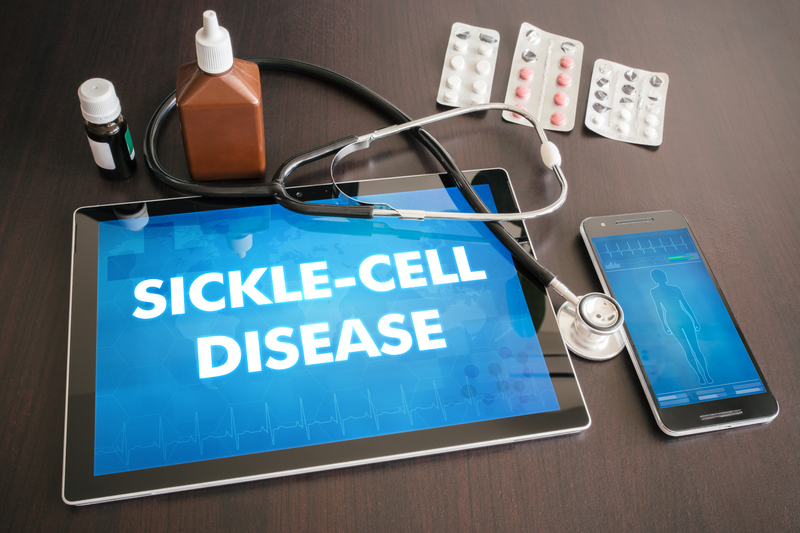Lora Ruth Wogu, CEO and Founder of Sickle Cell and Thalassaemia Ireland, outlines what sickle cell disease and thalassaemia are and why screening in Ireland is fundamental
Sickle cell anaemia and thalassaemia disease are 2 of the major genetic blood disorders that affect the red blood cells. Sickle cell disease is a disorder that affects the red blood cells which contain a special protein called haemoglobin. The haemoglobin is a protein in the blood that carries oxygen from the lungs to all parts of the body. For people who have sickle cell anaemia/ sickle cell disease, the red blood cells do not live up to the normal 120 days, they lose oxygen and form multiple sickle shapes which stick together, causing blockage in the blood vessels. This, in turn, causes severe excruciating pain to the person known as sickle cell crisis.
Thalassaemia disease is a genetic blood disorder in which the body makes an abnormal form of haemoglobin (protein in the blood). This results in excessive destruction of red blood cells, which leads to severe anaemia.
A blood test for haemoglobin S or sickle haemoglobin can tell you if your haemoglobin is normal, if you have sickle cell disease (SCD) or sickle cell trait (carrier status) or if you have another type of abnormal haemoglobin. (i.e. thalassaemia).
Getting screened to know a person’s sickle cell or thalassaemia status is extremely important at child-bearing age because sickle cell disease, sickle cell trait and thalassaemia can be passed down to children through their parents’ genes.
It is of great importance to know if you have sickle cell trait because you could have a baby with Sickle cell disease if your partner also has sickle cell disease, sickle cell trait or another abnormal haemoglobin gene (like haemoglobin C or Beta-thalassaemia).
It is vital that all newborns should be screened for sickle cell anaemia/disease or sickle cell trait. If left undetected and untreated, sickle cell Disease can lead to severe health problems and even death, early in childhood. It is of great importance to Screen for sickle cell anaemia and Thalassaemia at birth.
Inheritance of sickle cell disease or sickle cell trait
If both parents have sickle cell trait, there is a 50% (or 1 in 2) chance that any child of theirs also will have sickle cell trait, if the child inherits the sickle cell gene from one of the parents. Such children will not have symptoms of sickle cell disease, but they can pass sickle cell trait on to their children.
If both parents have sickle cell trait, there is a 25% (or 1 in 4) chance that any child of t heirs will have sickle cell disease. There is also 25% (or 1 in 4) chance that the child will not have sickle cell disease or sickle cell trait.
If one parent has sickle cell trait, there is a 50% (or 1 in 2) chance that any child of this parent will have sickle cell trait and an equal 50% chance that the child will not have sickle cell trait.
Sickle Cell Disease in Ireland
Due to the influx of Migrants from all over the world into Ireland in the last 2 decades, the lack of awareness for sickle cell disease and thalassaemia, the rise in cases of sickle cell disease is bound to increase dramatically.
As per 2009 statistics, (by Dr Corrina McMahon, consultant haematologist and lead specialist for sickle cell and thalassaemia in Ireland). There are currently over 400 children and 100 adults suffering from sickle cell disease in Ireland.
Sickle cell is still considered relatively new in Ireland and there is a huge deficit in knowledge among the healthcare professional on its management, treatment and related complications. There is no proper genetic screening protocol in place, and this fact is the front runner of SCTI’S campaign, “Be Aware, Know Your Gene Status” in partnership with Dr McMahon from Our Lady’s Children Hospital Crumlin.
We have been holding talks in several immigrant accommodation centres, encouraging people to get tested and know their Geno-type; we take part in the yearly Flora women’s mini-marathon, health fairs and educational workshops relating to sickle cell and thalassaemia diseases. Awareness is vital to fighting the growth of sickle cell and thalassaemia cases and New-born screening will very much help in the fight and detection of sickle cell cases.
Lora Ruth Wogu
CEO/Founder
Sickle Cell and Thalassaemia Ireland
Tel: +353 87 065 6807
info@sicklecellireland


